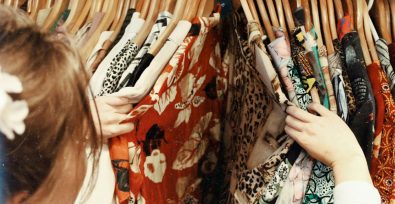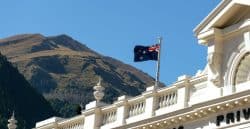“Who made this and at what cost?” That’s the question the whistleblower and author of a recent article in CBC asks himself now each time he makes a clothing purchase. Previously employed in the Bangladesh garment industry, Itrat Anwar witnessed first-hand that the true price of fast fashion can’t be measured in dollars and cents. Instead, he says, the price is one you can’t see but can be counted in human lives lost or wasted working under modern slavery.
“From boardrooms to boiler rooms, what I saw there shook me”
When Anwar finished his MBA in his native Bangladesh, he took a job at a company that sold machinery to local garment factories. His role gave him unprecedented access to not just the management side of the industry, but the worker’s side as well. For 5 years he walked through roaring sewing lines and sat with workers in crowded factory canteens.
Anwar said what he saw were people working in unbearable conditions for wages so low they could barely survive. He realized most people, himself included, were blissfully ignorant about where the clothes they purchased came from. Even worse, they were oblivious to the price others were paying for them.
Anwar stated:
The Western world often talks about “ethical” fashion…but the reality I witnessed was different. While these companies publicly called for higher standards, it appeared to me that the priorities were cheap labor, fast delivery and massive profit margins.
The garment industry in Bangladesh is one of the world’s largest. It is also a huge employer with more than three million people, mostly women, working in the sector. And it brings in $46 billion US annually to the country on average. Thousands of workers pour into the factory every day to earn paltry wages that barely allow them to feed their families, Anwar says.
“For me…it was unbearable. For workers, it’s their everyday reality”
Working in air thick with dust and under deafening noise from the machines, workers constantly face extreme pressure to meet impossible production quotas. And terrified of losing their jobs, they regularly worked 14 to 16 hours a day, seven days a week. What Anwar found most shocking was the lack of basic safety. He saw exposed wiring, wet floors, no proper ventilation and no protective gear in use.
In the worst examples Anwar said:
I had to pass through dyeing sections where massive machines churned with toxic chemicals, releasing fumes that stung my eyes and burned my throat. Boiler rooms felt like industrial furnaces — metal chambers radiating unbearable heat, with pipes hissing and valves rattling under pressure. The air was thick with steam and chemical vapours, making every breath a struggle.
Perhaps worst of all, Anwar saw a lack of functional emergency exits. After the horrors revealed by Rana Plaza 12 years ago, the world became outraged. Consumers demanded and brands made highly publicized promises to improve. And while some factories did make positive changes, and some brands did honor their promises, not enough has changed. From Anwar’s point of view, most simply moved on.
Many manufacturers just shifted their production to other countries with even cheaper labor and went back to business as usual. And in the factories that remained in Bangladesh not much has changed. The workers are still earning poverty level wages. Their working in conditions are still extremely hazardous. And, as Anwar states, they are still hoping and waiting for changes that rarely come.
Take a stand for safety and fair pay
To keep clothing at rock bottom prices, fast fashion brands must exploit workers to keep their costs low. And as Anwar witnessed, workers in the factories that make these clothes are subjected to abysmal working conditions and meager wages. Conditions that equal modern slavery.
The good news is, since our consumer culture’s insatiable appetite for buying these goods is part of the problem, it means by not “buying” into the system we can be part of the solution. Take a stand with Freedom United by signing our pledge to commit to sustainable fashion. Because style should never come at the expense of human lives.







Freedom United is interested in hearing from our community and welcomes relevant, informed comments, advice, and insights that advance the conversation around our campaigns and advocacy. We value inclusivity and respect within our community. To be approved, your comments should be civil.